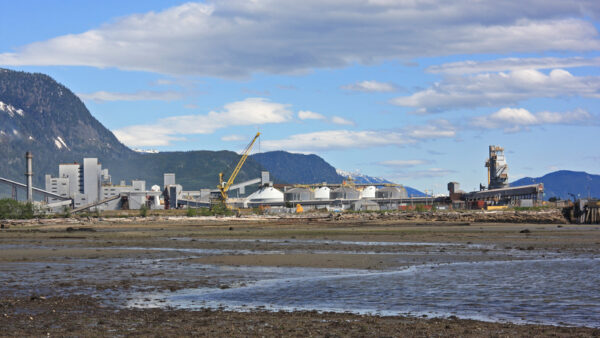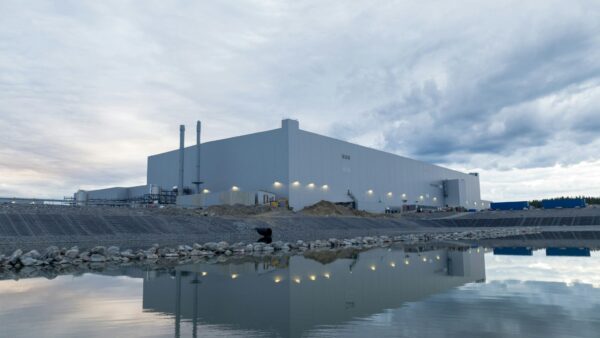Reaction to the collapse of the UK’s second largest construction group has focused on the reasons why the company’s troubles were allowed to push it past the point of no return.
Roger Barker, head of corporate governance at the Institute of Directors, said: “It is clear that major providers of public services must be governed in a prudent manner. Today’s outcome suggests that effective governance was lacking at Carillion, and we must now consider if the board and shareholders have exercised appropriate oversight prior to the collapse.”
He added that the decision to relax clawback conditions for executive bonuses in 2016 now appeared “highly inappropriate”. He said: “It does no good to the reputation of UK business when top managers appear to benefit in spite of the collapse of the organisations that they are responsible for”.
These comments were echoed by Lord Adonis, the former Labour minister and recently resigned chair of the government-backed National Infrastructure Commission. He said in a tweet this afternoon: “Carillion: Shades of a British Enron. Wild overbidding, fast-and-loose & grossly overpaid management, taxpayers taken for a ride, AWOL auditors & pliant/ignorant ministers and officials. This is going to run & run!”
Steve Webb, the former Liberal Democrat pensions minister, pointed out that Carillion’s 2016 annual report said its dividend payouts had increased in each of 16 years since formation of the company, then inquired: “Is this really acceptable alongside a pension fund deficit over half a billion pounds?”
Shehab Khan, a political commentator, added that Richard Howson, the former chief executive of Carillion, would be paid for 12 months after he resigned. “He stood down after Carillion issued a shock profit warning and is still being paid his £660,000 salary and £28,000 benefits.” This is on top of the £1.5m in pay and perks he received in 2016.
Tim Roache, the general secretary of the GMB Union, said the Conservative government was “asleep at the wheel” when it continued to award work to Carillion despite its profit warnings. He also attacked the policy of outsourcing public sector work. He told Sky News this morning: “We’re demanding assurance from Prime Minister Theresa May that Carillion contracts are taken back into public ownership – where they belong and should have been in the first place.”
Others were quick to point out that the Labour administration at Leeds council had awarded Carillion a £14m contract a week ago.
Vince Cable, the Lib Dem leader and former business secretary, pointed out that there would be some winners – hedge funds – from the collapse. He told BBC: “What is so galling, and is going to anger people so much, is the taxpayer is going to finish up paying a substantial bill for this collapse, while at the same time, the hedge funds have pocketed £300m effectively gambling against government decisions.”
A more acceptable gainer may be the SMEs that make up the overwhelming majority of the UK’s construction sector. The Federation of Master Builders (FMB), which represents smaller firms, said the collapse showed the risks inherent in over-relying on large construction groups for public sector work.
Â
Brian Berry, the chief Executive of the FMB, said: “Carillion’s liquidation will have serious knock-on effects for the many smaller firms in its supply chain, some of which will be in serious financial danger.”
Â
He said the government should now “open up public sector construction contracts to small and micro firms by breaking larger contracts down into smaller lots. That way, it can spread its risk while also reaping the benefits that come from procuring a greater proportion of its work from a broad range of small companies”.
Image: Tim Roache of the GMB union comments on Sky News
Comments
Comments are closed.











I am not at all surprised by the fall from grace of this company: the surprise is that it has taken so long.
Too many managers, particularly on PFI and PPP projects, producing absolutely nothing of value and too many clip board surveyors/engineers full of their own self importance producing little value.
All at a high cost to the end payer, which of course is the tax payer. From a disgruntled Chartered Construction small practitioner.
Cannot argue with comments regarding Carillion corporate governance – but many negative comments in the media about the company as a whole which those of us who work in this industry are very much aware do a great disservice to the tens of thousands who through no fault of their own are facing a very uncertain future.
As a former Tarmac/Carillion employee and pensioner – I know what a great company this once was and this is a sad day.
We can only support our colleagues and hope that the jobs of the innocent will be saved and that yet more skills will not be lost to the industry.
This collapse has so many sides to it so it is difficult to blame one thing but one major contributing factor is PFI and PPP (three in carillion) it was always floored when the idea is things are managed on a commercial footing inside the public sector. In the public sector there is a surplus (profit with another name) most public sector does not work with a surplus orientated strategy but some times it can occur. This would be the Profit the private sector would live on. That shows there is not much profit to be had from outsourcing. PFI PPP?
It’s interesting that so many Labour politicians now say how bad PFI PPP is for the public sector but I believe they need reminding which Party was in power when this was all instigated, Mr Blair.
It really comes as no surprise at all to anyone out there in industry what has occurred with Carillion. I left 13 years ago after they took over Mowlem when it was quickly obvious that they had people in positions of authority who could plainly not do the job they were being paid for. It seemed at the time to be run by accountants as you might have to wait 2 weeks for materials as the price was predicted to be coming down, this gave no consideration to the people you had stood on site due to lack of materials which was a far greater cost but they didn’t seem to want to listen from people at the sharp end as they always knew better. They also seemed to work as geographical fiefdoms with sub contracts going to mates who were not up to it rather than to companies who would do a proper job, on time, to specification and commercially at cost.
I have not yet retired but this is obviously going to affect my pension going forwards. The analogy about Enron is a good one but personally i don’t think anyone at Carillion were as savvy as those at Enron!!
The unfortunate collapse, last Monday, January 15th, 2018 – of UK’s multi-billion construction & services conglomerate – CARILLION – beggars belief! How a giant business with billions of pounds worth of contracts – 450 at the last count – go bankrupt beats me hollow!?
To rub salt into an open wound of affected smaller businesses, Carillion management, who obviously mismanaged this international concern, will continue to smile to the bank with overpaid six-figure bonuses. I ask: had the management not had enough with all their overpaid pay? Seems to me, this is sheer greed, and as I’ve always maintained, when one is greedy, no amount is enough. Whatever happened to good ole business ethics? What of Code of Considerate Constructors? It is pretty obvious to me, that this is not only managerial business incompetence, but moral bankruptcy on the part of Carillion management as well.
Lastly, the Tory Government should own up to their lack of appropriate oversight functions when Carillion gave three indications of the impending bust – telling all and sundry of an accident waiting to happen! Yet, there was this government minister in the cabinet office on BBC 2 today, January 17th, 2018, trying to justify the unjustifiable. Political correctness? Is it so wrong to say the Government erred? To me, says Nobel Laureate, Wole Soyinka, justice is the first condition of humanity. And I find myself asking, in outrage of course, will all those affected SMEs ever get justice???
Not surprised as this was a disaster waiting to happen. Have always considered PP and PFI to be avoided at all cost as it is driven by Bankers, Accountants, Lawyers and Pension/Insurance Companies who have a totally different agenda to a construction company.
It was introduced by a Labour GOVT. as a way of avoiding having to show this expenditure on the Govt. balance sheet and all it did was increase the cost of those works and tying future generations into paying huge amounts to those aforementioned people over a 30 year period.
Where were the Architects or old fashioned QS’s who used to monitor the programme or in the case of the latter who used to visit the site more than once a month and were on site to measure the work done and agree the interim monthly payments and in addition have regular meetings with the design team to discuss delays, non payment to sub contractors and deal with the contractual issues as they arose including risks.
Putting all your eggs into one basket is not good advice and Carillion was just too big and handed too many contracts to be able to manage them efficiently. These large public contracts should be broken down into separate smaller contracts and more SME’s given a chance to tender for them which would spread the risk more evenly. Also the Facilities Management aspect should never be part of the construction contract but a separate contract entirely. Also all PFI and PP contracts should be scrapped as of now.
I am a retired PQS with 57 years experience.